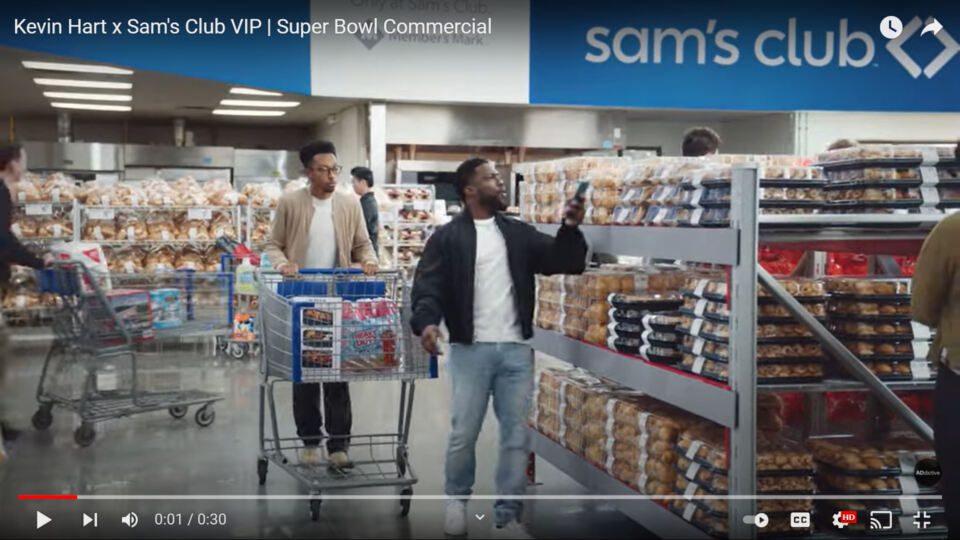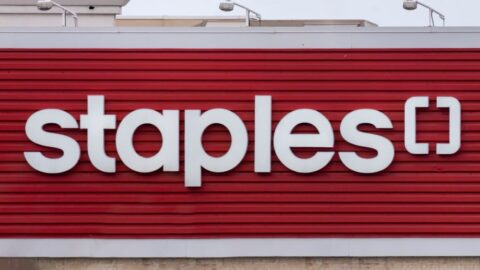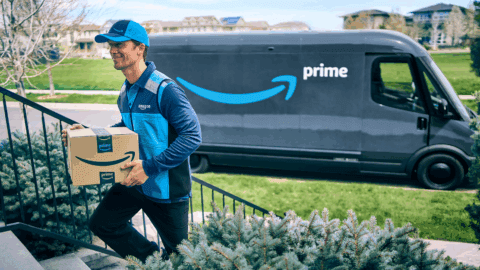People watch the Super Bowl to be entertained and to take part in one of the few remaining cultural experiences that’s shared in real time. This, of course, makes the stakes high for advertisers: not only is ad time costly (the average rates for a 30-second spot rose 5% this year to reach $4.8 million, or $160,000 per second), but there’s intense focus on their content even by people who don’t watch the game itself.
For people in the retail ecosystem, particularly marketers, the ads also offer valuable lessons that apply equally during the other 364 days of the year. Here are the Retail TouchPoints editors’ takes on some of the most important messages behind the messages, including:
- If you have a compelling product benefit, feature it — potential consumers are hungry for something concrete;
- Next-generation technology like crypto and NFTs, which mostly lack a Unique Selling Proposition, are nevertheless becoming bigger parts of the cultural discussion; and
- The biggest players in tech are presenting competing views of the future and their respective places in it, so pay attention to what’s spin and what’s sincere.
B2C Commercials Sometimes Forget to Sell the Product
It’s easy to understand the temptation for Super Bowl ads to go big with A-list celebrities, catchy songs and eye-catching visuals. Spending millions of dollars on a 30-second spot is cause for some excess, but more isn’t always better — if you’re not showing why your product or service stands out it’s easy to get lost among all the other explosive, celebrity-packed commercials crowding the night.
The Sam’s Club ad “Like a VIP” does a fairly good job of this. It has a big name in Kevin Hart, and it ties his celebrity to the convenience of Scan & Go. It may have gone a little too far in the other direction — there’s arguably too little pizzazz and the main joke falls a bit flat — but where it succeeds is in laying out a compelling reason to shop at the warehouse club store. Hart is there to catch your attention, but the real focus is on how easy it is to shop at Sam’s Club.
Rakuten’s “High Stakes,” which features Emmy winner Hannah Waddingham of Ted Lasso, is another example of an idea done right. It doesn’t let her star power overpower the message: Waddingham plays a snooty villain engaged in a high-stakes game of poker, betting high-end items ranging from designer heels to 4K TVs against her everywoman opponent. The joke is that this woman has managed to pick up all these exclusive products through Rakuten, which she proudly (and prominently) displays through the app on her phone.
An example of where reliance on celebrity and spectacle over substance went too far can be found in Taco Bell‘s spot, “The Grande Escape,” which focuses on insulting fast food hamburgers and showing off flashy costume changes over pushing its own food. It’s bright and energetic, and Doja Cat brings the requisite star power, but it leaves you wondering what sad clowns and stylish cars have to do with Taco Bell.
Tactical takeaway: Celebrities and special effects aren’t enough — don’t forget to include your actual message. — Bryan Wassel
Next-Gen Tech Inches into the Cultural Conversation
Next-generation technology like crypto and NFTs have both become hot topics in the “retail zeitgeist,” but it was fascinating to see how companies simplified these concepts and presented them to the masses.
For example, the FTX commercial starring Larry David was a hit in the Esposito household. We loved seeing the master of sarcasm venture through time and give his assessment of some of the world’s most beloved inventions — from the light bulb to portable music.
Crypto.com took a different approach, onboarding LeBron James to talk to his younger self about the future. The setting reeks of nostalgia: a teenager’s bedroom adorned with posters and Dr. Dre playing as the soundtrack. It’s a great contrast to the dialogue itself, which focuses on the future. “Old LeBron” chats with “young LeBron” about smartphones, cordless headphones and electric cars, and whether “young LeBron” is truly ready for the big leagues. The takeaway? “Fortune favors the brave.” (Although I’m not sure I want to feel “brave” when I invest money.)
Sure, these NFT projects showed brand action, but like the crypto ads, they don’t dig much deeper than the surface level. Are they fun? Of course. Some of them even contribute to a larger cause, which certainly creates some warm-and-fuzzy feelings. But the true value of NFTs seems to lie in exclusivity — the ability to own something incredible from a creator that also shows membership in a bigger community. My hope is that next year, more brands will tap into this value rather than simply trying to jump on the bandwagon.
Tactical takeaway: If you sell a complex solution or technology, simplifying what it is and how it works is key. But you can’t ignore discussing looming questions or concerns your consumers may have, because it will only seem like you’re trying to hide something. — Alicia Esposito
Big Tech Battles it Out for Mindshare and Momentum
America’s tech giants are under pressure. As legislators continue to push for crackdowns on the ever-growing clout of Amazon, Google, Meta and the like, concerns about privacy and the societal impact of these platforms have taken the shine off for many consumers.
So far the bad PR hasn’t really impacted the FAAMG gang’s momentum (although Meta’s Q4 results revealed some troubling headwinds). Still, there’s no denying that Big Tech has an image problem.
Salesforce (not exactly “small tech” itself BTW) played right into these worries with a not-so-subtle dig at the “lofty” ambitions of Zuckerberg, Musk and Bezos (without naming any of them directly). “It’s not time to escape, it’s time to engage. It’s time to build more trust. So while the others look to the metaverse and Mars, let’s stay here and restore ours,” opined Matthew McConaughey after ditching his spaceship to #JoinTeamEarth (a move that will be led by Salesforce, of course).
No matter how much shade gets thrown, there’s no turning back now for Meta — with that new name, what else are they gonna do? In the company’s latest attempt to convince us that the metaverse is going to change the world (and save Facebook), Meta’s Super Bowl ad gave an animatronic dog a new lease on life after his Chuck E. Cheese-style restaurant was shuttered. The parallels feel almost painfully literal — trying to breathe new life into what was a cultural touchstone for Gen X and millennials (Facebook and Chuck E. Cheese alike), but has now faded into obsolescence as younger consumers move on.
Amazon meanwhile leaned into its bad press with an imagining of the horrors that would arise if its voice assistant Alexa could not just follow your commands but also read your mind. It was a risky gambit given that consumers are already leery of the devices’ omnipresence. Perhaps Amazon is hoping that when compared to the horrors of having your innermost thoughts broadcast during a dinner party, the fact that Alexa is listening to you all the time won’t seem so bad.
Google took a very different tack with its promotion of the Pixel camera’s new Real Tone tech, designed to “accurately represent darker skin tones.” But this was about more than just a new product feature. In choosing to focus on this one very specific innovation, Google successfully put itself in the center of current discussions about diversity and representation.
Tactical takeaway: Big Tech’s success is reliant on consumers’ (and Congress’) compliance, and a big shakeout is coming. The battle for the hearts, minds and data of consumers has only just begun, but the outcome has the potential to redefine cultural and commercial dynamics for decades to come.













